-
Featured Items
-
Featured Resources
 Funding & Grants
Don't miss out on funding opportunities. Stay informed with our up to date online listings and email notifications.
Read More
Funding & Grants
Don't miss out on funding opportunities. Stay informed with our up to date online listings and email notifications.
Read More
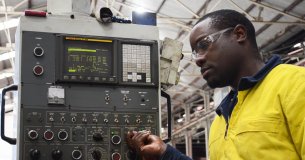 Skilled Migration
Our services help both applicants and employers, to learn more, develop plans, submit applications, and settle in.
Read More
Skilled Migration
Our services help both applicants and employers, to learn more, develop plans, submit applications, and settle in.
Read More
 Research and Analysis
Good research and analysis makes the case. How can our resources and services help your project or application?
Read More
Research and Analysis
Good research and analysis makes the case. How can our resources and services help your project or application?
Read More
 Information & Data Resources
With resources like REMPLAN, Regional Knowledge Base, and decades of data, discover how we can help your project.
Read More
Information & Data Resources
With resources like REMPLAN, Regional Knowledge Base, and decades of data, discover how we can help your project.
Read More
-
Stay InformedSubscribe to one or more of our regular email subscriptions, to be kept up to date on news and funding opportunities for the region
-
-
Our Region
- Our Region
- Regional Plan
- Regional Data
- Current Regional Issues
- Population Migration Analysis for 2016-21
- Job Vacancies Continue at All-Time High
- National Debt - What it Means for Our Economy?
- The True Value of Home Solar
- The Economic Impacts of Local Government Amalgamations
- State of the Regions Report 2014-15
- Antifragility - A different take on regional economic development
- Biohubs - Collaborative Waste Management
- Attracting New Residents
- Socio-Economic Impacts of the Murray Darling Basin Plan
- Murray Darling Basin Water Recovery
- Growing Businesses
- The Northern Inland Economy
- Geographical Overview
- Major Industry Sections
- Our Services
- Grants and Funding
-
Skilled Migration
- Skilled Migration
- Skilled Employer Sponsored Regional Visa
- Skilled Work Regional Visa (subclass 491)
- Temporary Seasonal Workers
- Designated Area Migration Agreement (DAMA)
- Helpful Information for Visa Holders
- Information for Employers
- Case Studies
- Payment Details
- Advice & Further Information
- Contact Details
- News & Events
-
Our Projects
- Our Projects
- Current Projects
- Skilled Migration
- Wool Works - Wool Training Schools
- Metal Works - Welding and Fabrication Schools
- Come On Inland
- Stories of Resilience
- Alt Brothers Beekeeping - Glen Innes
- Carelle's Toy Store - Glen Innes
- Greenhill Orchards - Arding
- Gwydir Meats - Warialda
- Kaputar Motors - Narrabri
- Moonbi General Store - Moonbi
- Sandstock - Tingha
- Sherelle Fashions - Tenterfield
- Sleepy Merino - Inverell
- Tenterfield Chamber of Toursim, Industry and Business - Tenterfeild
- The Welders Dog - Armidale
- Walcha Veterinary Supplies - Walcha
- AGCAP - Agribusiness Careers & Professions
- Northern Inland Regional Investment Profile
- Past Projects
- Digital Economy Strategy
- Business Growth Project
- Go Digital
- How to Start an Online Business
- Create Your Website Using Squarespace
- How to Edit Your Squarespace Site - Part 1
- How to Edit Your Squarespace Site Part 2
- Add a Shop to Your Squarespace Site
- Start a Blog and Find out What Customers are Searching
- 14 Tips For a Better Blog Post
- Which Social Media Platforms are Best for Your Business
- How to Use Facebook Effectively For Your Business – Part 1
- How to Use Facebook Effectively For Your Business – Part 2
- Instagram Tips for Business
- Catching Up, More Instagram & Dealing with Haters
- Getting Started with Twitter for Business
- Social Media Scheduling Tools
- How to Start an Etsy Shop – Part 1 – Research
- How to Start an Etsy Shop – Part 2 – Signup
- Online Security for Your Business
- Product Photography and Website Images: Your Guide
- 5 Tips to Improve your Productivity in your Business
- Best Online Business Resources
- How to Improve Your Communication Skills and Win More Clients
- NBN Coordinator
- Putting Power Back in the Regions
- Road Freight Study
- Town Audit Benchmarks
- Food and Wine
- Youth Survey
- Digital TV Switchover Assistance
- Northern Inland Transport Guide
- Live.Train.Work
- Northern Inland Innovation Awards
- Northern Inland Innovation Awards - 2017
- Northern Inland Innovation Awards - 2016
- Northern Inland Innovation Awards - 2015
- Northern Inland Innovation Awards - 2014
- Northern Inland Innovation Awards - 2013
- Northern Inland Innovation Awards - 2012
- Norther Inland Innovation Awards - 2011
- Prime Super Northern Inland Innovation Awards - 2010
- Prime Super Northern Inland Innovation Awards - 2009
- Northern Inland Innovation Awards - 2007
- Northern Lights Project
- NBN Smart Home
- Murray Darling Basin
- Moree Plains Business Workshops
- Namoi Investment Prospectus
- Industrial Land
- Bioenergy and Local Electricity Retailing
- Northern Inland Business Energy Assessment
- Skills for the Future
- Impacts of COVID-19 on Businesses
- Past Projects of NIRDB
- Aboriginal Employment and Enterprise in the Gunnedah Region
- Art as an Industry
- Aviation Survey
- Farm Forestry - Northern Inland Forestry Investment Group
- New England North West Film Strategy
- Northern Inland Excellence in Business Awards
- Food and Wine 2003 - 2008
- Prime Super Northern Inland Innovation Awards 2009
- Regional Business Networking Program
- Regional Leadership Course 2008
- Viticulture Strategy 2002-2003
- About Us
- Contact Us
- Other Resources
- Privacy and Legal
- Search
Back to Newsletters
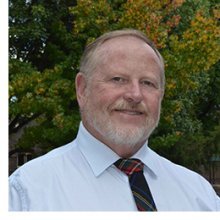
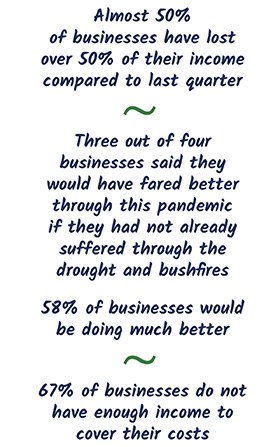
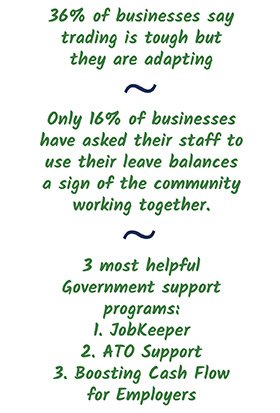
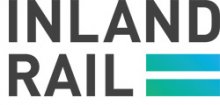
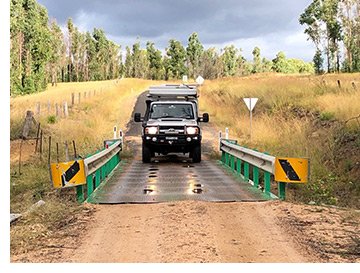

May 2020 Newsletter
Thursday 4th of June 2020
In this Issue
- Welcome from the Chair
- Our Businesses Are Doing It Tough, But They Are Resilient
- Long-Term Opportunities from Inland Rail
- Helping Council Apply for Bridge Funding
- $15 Million for Northern Inland Roads and Infrastructure
- Connecting Businesses to Respond to COVID-19
- Free Online Training and Coaching to Cut Energy Costs
- Featured Grants and Funding Opportunities
Welcome from the Chair

Dear Northern Inlanders,
As our region continues to face unprecedented times, the resilience of our communities continues to shine. As our communities start to reopen with decreased restrictions, it is now time to work together to rebuild from the devastation of not only COVID-19, but also the bushfires and the ongoing drought. While the Australian Government’s support programs have helped us through these times, I am looking forward to hearing further details of the JobMaker program when they become available so we can work towards a stronger economy for our region together.
The results of our Impacts of COVID-19 on Businesses survey are in, and the impact has been significant. Almost half of our businesses have had a downturn of 50% or more of their income, and 67% do not have enough income to cover their operating costs. We are continuing to work closely with the Australian Government to provide feedback about the experiences of businesses in our region during the shutdown and during the recovery period, which will take years of hard work. Our businesses have been hit hard by the triple-whammy they have suffered, with 58% stating they would be doing much better through this pandemic if they had not already been suffering from the drought and bushfires. Yet the survey also highlighted the resilience of our business, with 36% of businesses stating that trading is tough, but they are adapting, and only 16% have asked staff to use their leave balances. Thank you to everyone who participated in our study, we truly appreciate your time to contribute, and further details of the results are available below.
Regards,
Russell Stewart
Chair
Our Businesses Are Doing It Tough, But They Are Resilient

Last month we conducted a survey of almost 200 businesses in the Northern Inland region to gather cold hard facts and figures to paint a clear picture of the stark COVID-19 reality for local businesses.
The unprecedented pandemic measures which ripped out over 5,000 full-time equivalent jobs (an estimated 7,500 jobs including part-time and casual positions) from our economy, followed a horror bushfire season and the worst drought ever recorded in our region.
The data provided from the survey shows just how big a hit our economy has taken and how business owners have managed their costs. This is critical for appreciating and shaping the re-growth battle ahead.
Regional Australia might expect a tougher, slower recovery than our big cities because the triple whammy we have faced and economic dependence on the agricultural sector, which has seen relatively little assistance in comparison. Yet, our resilience and community spirit has been tried and proven. Drought recovery requires significant reinvestment and does not happen overnight, but our agribusinesses have been enjoying their best conditions in years and that will help with the confidence we need across the board to recover from Covid-19 restrictions.
Data from the region-wide Covid-19 business survey has already been conveyed to the Federal Government. Together with representatives of regions around the country, we are taking part in regular teleconferences with Assistant Minister for Regional Development and Territories, the Hon. Nola Marino, as well as senior Government officials from the Departments of Regional Development and Treasury. The Government is certainly getting the latest on how our region is managing this crisis.
The most directly impacted businesses by Covid-19 restrictions and therefore the most common in our survey, were hospitality, service and retail enterprises. However, the impacts have dramatically flowed on, across all sectors. Whether impacted directly or indirectly, more than three-quarters of local businesses have taken a moderate hit or worse.
There was a quarterly downturn of 50 percent for half of the survey participants and 67 percent do not have enough income to cover operating costs. We also saw that three out of four would have coped with the pandemic better had they not already endured tough times due to drought and bushfires.

More than one-third of businesses have been considerably reduced by their inability or limited capacity to import or export.
In hospitality and retail, commercial rent was discussed by Federal and State Governments early in the Covid crisis and the onus for a sustainable approach was left up to the businesses and their landlords to negotiate. Our survey showed that 27 percent who needed a special agreement were able to achieve one, but 10 percent tried and failed.
The Covid-19 crisis saw policies rolled out rapidly and many employers have admitted to not keeping up to date on changes in employment law, awards and occupational health and safety. Our Governments are being thorough in getting a great deal of information out to the public as quickly as possible. It is important that local businesses observe Covid-19 or general business regulations from appropriate Government websites and not via social media.
There has been a general build-up of debt, as tertiary industries have struggled to meet costs and retain staff in the face of dramatically reduced or completely halted income. This will handicap or prolong Covid-19 recovery for many.
In general, Northern Inland businesses approve of the Federal and State Government’s handling of the Covid-19 crisis and most report that the situation for them and their employees would have been far more desperate without the JobKeeper program. Businesses reported that the JobKeeper, ATO support and Booting Cash Flow for Employers programs would be the most helpful.
A summary of the survey results is available on our website.
Long-Term Opportunities from Inland Rail

The Inland Rail offers a clear track for further investment into northern New South Wales, with an economic study released last week by the Australian Government outlining growth in food processing, logistics hubs and consumer warehousing in towns along the rail line. The Northern NSW Long-Term Regional Opportunities report shows a significant boost to jobs and investment in the area as a direct result of the project.
Deputy Prime Minister and Minister for Infrastructure, Transport and Regional Development Michael McCormack said the study was a call-to-arms for small and big business to take advantage of the enhanced connectivity and cost-competitive supply chains created by Inland Rail. “The report shows Inland Rail is capable of supporting another 310 full-time jobs by 10 years of operation and could boost gross regional product by up to $1.7 billion over a 50-year period,” Mr McCormack said.
“Our Government is committed to supporting Australian industry by creating opportunities to keep business open and economies growing. Inland Rail will provide benefits in regional communities for decades to come so we want to see industries expand outside metropolitan areas by taking advantage of the significant infrastructure we are delivering, lower land costs, resources and the ready and willing regional workforce. We want Australia to be in the best position to not only recover from the disruptions caused by COVID-19, but thrive after the immediate threat has passed with all levels of Government working together to drive economic resilience and support jobs in our regions.”
Minister for Regional Health, Regional Communications and Local Government and Federal Member for Parkes, Mark Coulton, welcomed the report and the opportunities highlighted for the region. “This report is an endorsement of what our Government has always known – Inland Rail is a transformational project that is going to deliver lasting opportunities for business,” Minister Coulton said. “The time is now for industry to start planning for the coming decades and strategically position themselves to build resilience in their supply chains and take full advantage of the huge benefits Inland Rail is going to offer.”
“The report includes industry case studies for Narrabri and Gunnedah – but what this report shows us is that there are opportunities for industry throughout northern New South Wales and not just along the 1700-kilometre line. I want regional communities in northern New South Wales to have the same opportunities as metropolitan and coastal communities. Northern NSW is in a strong position to maximise the opportunities presented by Inland Rail.”
The study region for the report includes 16 local government areas that are approximately 50km east and 100km west of the Inland Rail alignment. It includes the Northern Inland Local Government Areas of Moree Plains, Narrabri, Gunnedah, Liverpool Plains, Tamworth Regional, Gwydir and Inverell.
Helping Council Apply for Bridge Funding

Paddy’s Flat Road in the Tenterfield Shire Council area is an important freight transport route running 60kms from the Bruxner Highway at its southern end, to the Tooloom Road at its northern end. The road provides transport and passenger vehicle access to Tenterfield, Casino, the North Coast and south east Qld.
There are a number of important industries along the route including a large blueberry farm, avocado growers, cattle producers and tourism businesses. Numerous farm inputs also must travel along the road. There is a significant NSW Forestry Corporation and private forestry resource (26,300 hectares) which currently cannot be harvested or thinned due to load limits on two key bridges on Paddy’s Flat Road – one 3kms from the intersection with the Tooloom road, and one 3kms from the intersection of the Bruxner Highway. Council have upgraded other key bridges along the road and these two remaining bridges now remain a major impediment to utilising the forestry assets, and allowing the use of larger trucks to improve the freight efficiency task for other businesses as well tourist buses bringing school students from Qld to the Clarence camping facility which must travel an additional 2 hours.
Council are applying for around $780,000 of government funding under the Australian Government’s to replace both bridges, raising the load limit such that B-double and semi-trailer trucks can operate. This will dramatically improve the efficiency of both the inward and outward freight tasks and open up access to a stranded forestry resource which presently cannot be managed properly or harvested as thinning and clearfall products cannot be transported out.
Our team are assisting council with the funding applications by conducting the Benefit-Cost Analysis economic modelling for the two bridge projects. Increasingly, councils are being asked to provide economic evidence that their road upgrades make sound economic sense and Benefit-Cost Analysis is the standard method of providing this evidence.
$15 Million for Northern Inland Roads and Infrastructure

The Australian Government will deliver a $1.8 billion boost for road and community projects through local governments across Australia through the new Local Road and Community Infrastructure Program and Councils in the Northern Inland will receive a total of almost $15 Million under the program. The package of support will help local councils support jobs and businesses by delivering priority projects focused on infrastructure upgrades and maintenance.
The new $500 million program and the bringing forward of $1.3 billion of the 2020-21 Financial Assistance Grant payment will also help communities battling the effects of COVID-19.
Prime Minister Scott Morrison said local governments were playing a critical role in responding to the impacts of COVID 19. “Our funding boost will help councils accelerate priority projects that will employ locally and support local business and also stimulating our economy,” the Prime Minister said. “These projects will cut travel times, make our communities safer and upgrade the facilities we all enjoy while also getting more people into jobs. We know this is going to be vital support, particularly for councils that have faced the combined impacts of drought, bushfires and now COVID-19.”
Deputy Prime Minister and Minister for Infrastructure, Transport and Regional Development Michael McCormack said supporting councils to improve local roads and community infrastructure would have lasting economic and social benefits for communities, particularly those in the regions. “This package will improve road safety and bolster the resilience of our local road networks, which will get Australians home sooner and safer, no matter where they live,” the Deputy Prime Minister said. “Projects could include constructing or improving bridges and tunnels, street lighting and heavy vehicle facilities such as rest areas. Providing support for social infrastructure projects such as new or upgraded bicycle and walking paths, community facilities, picnic shelters and barbeque facilities at parks, will help communities, especially those in regional and remote areas, stay connected.”
Minister for Regional Health, Regional Communications and Local Government Mark Coulton said investing in infrastructure and jobs was crucial to helping regional communities rebound from COVID-19. “Our package enables councils to continue their proven track record of partnering with the Coalition Government to deliver opportunities for locals to be employed and businesses to benefit by providing materials and services,” Minister Coulton said. “The package takes Commonwealth investment in local governments through the Financial Assistance Grant program to $2.5 billion this financial year, with a further $1.2 billion being distributed through other programs to deliver infrastructure, and provide relief from drought and bushfires.”
Guidelines for the Local Road and Community Infrastructure Program will be provided directly to local governments by the Department of Infrastructure, Transport, Regional Development and Communications.
Connecting Businesses to Respond to COVID-19
Businesses wanting to play their part in the response to the COVID-19 pandemic will have greater access to potential partners and customers thanks to an industry matchmaking site backed by the Australian Government. Developed by the Government’s Advanced Manufacturing Growth Centre (AMGC), the COVID-19 Manufacturer Response Register will bring together manufacturers, suppliers and customers via a self-managed platform.
Member for New England, Barnaby Joyce, said the capability matching feature of the platform allowed companies to post a need, solution or capability online, which would be shared on a live community feed. The supply matching feature will help suppliers connect with organisations looking for crucial supplies across the manufacturing value chain, be it research, design, production or service and support.
“The economic impact COVID-19 is having on local business here in the New England is unparalleled,” Mr Joyce said. “That’s why it is so important local industry and businesses are able to get back on their feet as soon as possible. To help re-establish supply chains, we’re playing matchmaker and linking those producing the goods, with the distributors and the end customers - all they have to do is register.”
Minister for Industry, Science and Technology Karen Andrews said finding a solution to connect local supply and demand for personal protective equipment (PPE) was at the forefront of the Government’s response to the COVID-19 crisis.
“Industry asked for this and we have delivered. This digital platform is the missing puzzle piece that will unlock widespread collaboration across the manufacturing sector and boost domestic capability by creating and expanding local supply chains,” Minister Andrews said. “The matchmaking platform has already resulted in local businesses pivoting to produce essential medical supplies for COVID-19 - keeping Australians in work and building long term capability in the recovery phase.”
AMGC Managing Director Dr Jens Goennemann said the willingness of Australian manufacturers to support the current crisis demonstrates the strength of the industry. “Australian manufacturers are highly skilled, resilient and willing, and this enhanced platform allows them to continue to support the COVID-19 response while offering their services to a broader range of potential customers,” Dr Goennemann said.
Free Online Training and Coaching to Cut Energy Costs
Energy NSW is providing free energy management courses for businesses to assist the management of energy costs and emissions. The training courses are available in flexible learning modules through their new e-learning platform and range from 20 to 45 minutes. Available topics include:
- Introduction to energy management
- Introduction to the Energy Saver Scheme
- Building the business case for energy efficiency projects
- Energy efficient HVAC for business
- Energy efficient lighting
- Commercial refrigeration
- Compressed air systems
They are also funding energy coaches to give your business a one-on-one check-up to show you ways to cut costs and emissions and help you apply for government funding to do it.
Further information can be found on the Energy NSW website.
Featured Grants and Funding Opportunities
To help businesses and individuals affected by Coronavirus (COVID-19) access the available assistance we have created a dedicated Coronavirus Assistance page on our website. This page will be updated as details become available on the recently announced economic stimulus packages from the Australian and NSW Governments.
There is also wide range of assistance available for individuals, businesses and communities that have been affected by the ongoing drought and the recent bushfires. To help you access this support, we have created dedicated Drought Assistance and Bushfire Assistance pages on our website which are being updated reguarly.
Below are some featured grants and funding opportunities from the multitude of open grants listed in the Grants and Funding Opportunities area of our website. Our website is updated weekly with new listings and updates and all are applicable to our region, so it is a great resource if you are looking for funding for a specific project.
You can also sign up to our Business and Infrastructure Funding Opportunities and the Community Grants and Award Programs newsletters through the simple form located on the left-hand side of our website: www.rdani.org.au, to receive monthly summaries of currently open grants.
Community Building Partnership
Closes: 12th of June 2020
Value: $2,500 to $300,000
Run By: NSW Government
The NSW Government is investing in infrastructure projects that deliver positive social, environmental and recreational outcomes while promoting community participation, inclusion and cohesion. In 2020, there is a maximum of $300,000 to allocate in each electorate for incorporated not-for-proft community organisations and local councils.
Eligible projects will be assessed against four equally weighted program criteria:
- Enhancing facilities — the project develops a vibrant, sustainable and inclusive community through the enhancement or construction of community infrastructure.
- Meeting community needs — the project supports activities and services needed by local communities.
- Increasing community participation — the project encourages participation in activities or services needed by a broad section of the community.
- The organisation’s capacity — the applicant has the capacity to deliver the project on time and within scope.
Make The Difference!
Closes: 20th of July 2020
Value: Up to $10,000
Run By: Future2
Future2 is the charitable foundation of the Financial Planning Association of Australia (FPA) which has a mission to make a lasting difference in the lives of young Australians who need it most.
This year they are offering up to 20 grants of up to $10,000 each for one year grants.
Applications to receive grant funding are invited from organisations that have programs to address the needs of disadvantaged young Australians aged between 12 and 25. They can cover any of the following areas:
- Education, including skills training and leadership development
- Engagement, including mentoring and juvenile justice programs
- Employment, including work experience and job readiness training
- Wellbeing, including remedial programs for drug and alcohol dependence
- Independent living and social inclusion
Related Pages







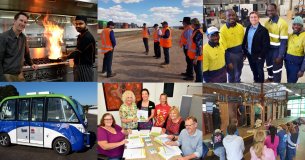 Latest News
Latest News
